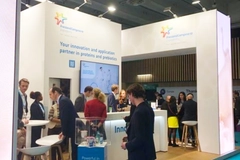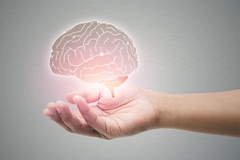Diabetes UK Guidance for Eid Celebrations
05 Jul 2016

05 Jul 2016 --- Diabetes UK has provided advice for Muslims with Type 2 diabetes preparing to celebrate Eid, as the month of Ramadan draws to a close.
Eid is a major occasion, and celebrations involve lots of food which can create a challenge for people with diabetes. However, having the condition doesn’t mean traditional festive foods are forbidden according to Diabetes UK. Just like everyone else celebrating, high fat and high sugar foods, such as barfi and rasmalai, can be enjoyed in moderation.
The British-based patient, healthcare professional and research charity advises that throughout the day, it’s best to eat foods that are absorbed relatively slowly, such as basmati rice, chickpeas and dhal or biryani. These types of foods, and fruits and vegetables, can help keep blood glucose levels more stable during the celebrations.

For those who monitor their blood glucose levels at home, they are reminded to test more regularly during the festivities to make sure that they don’t get too high.
People from Black, South Asian and Middle Eastern communities are two to four times more likely to develop Type 2 diabetes.
Some small changes can also be made to make traditional recipes healthier, for example replace sugar with sweetener and use semi-skimmed or skimmed milk instead of full fat milk. Healthier desserts such as fruit salads and low fat fruit yoghurt can also be chosen instead.
Practical tips on shopping for food, meal planning and healthy swaps are available in the Diabetes UK Enjoy Food guide, which also offers nutritional advice, recipes and ideas for making traditional dishes and drinks healthier, such as sprinkling finely chopped coriander seeds on top of lassi for extra flavor.
The guide is written by chefs and clinical advisors at Diabetes UK using current scientific-based evidence. It’s accessible in combined English, Urdu and Gujarati and aims to support South Asian families with diabetes to shop, cook and eat well.
All content and features on this website are copyrighted with all rights reserved. The full details can be found in our privacy statement
Subscribe to our newsletters
By continuing to browse our site you agree to our Privacy Statement













